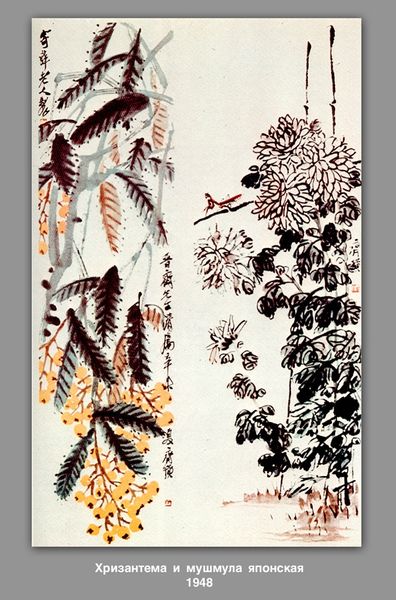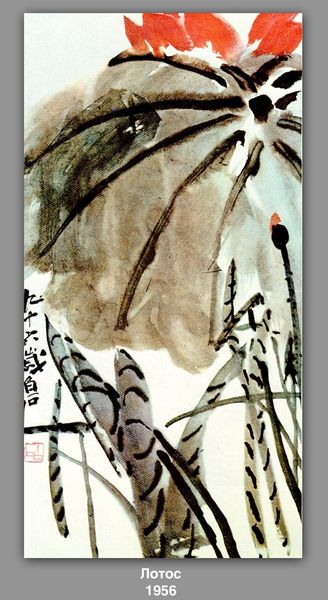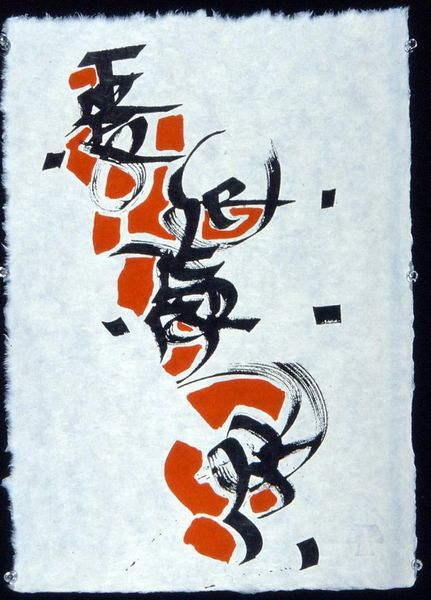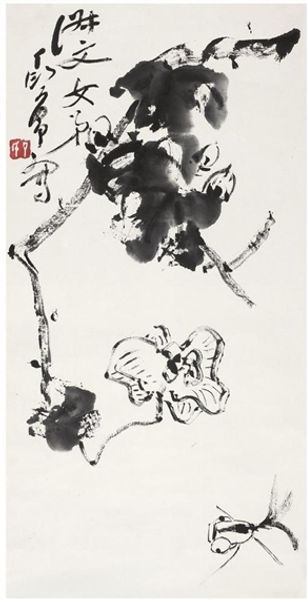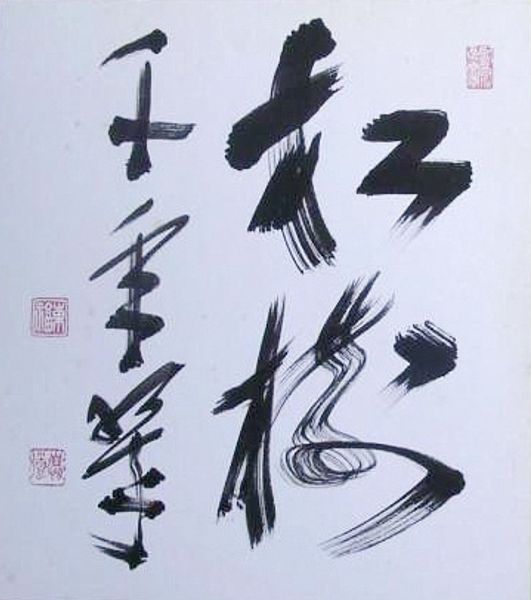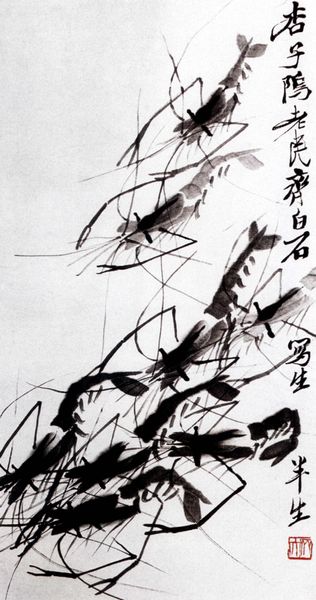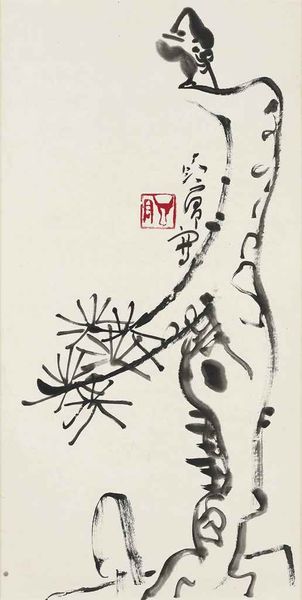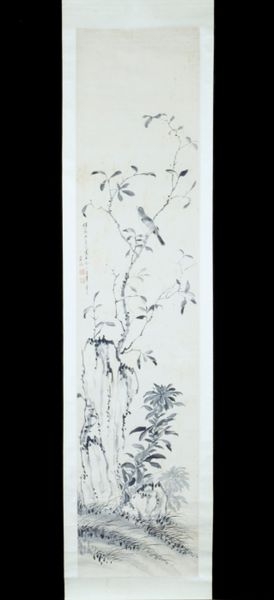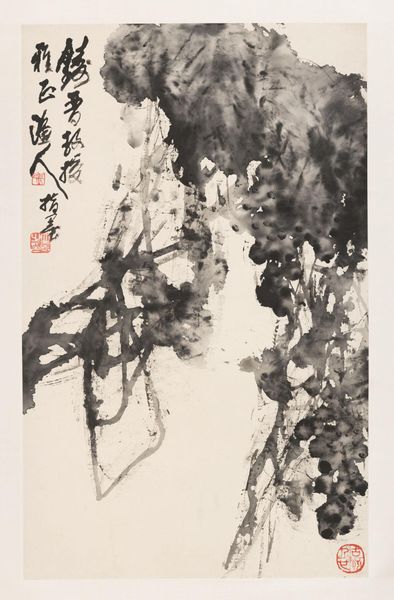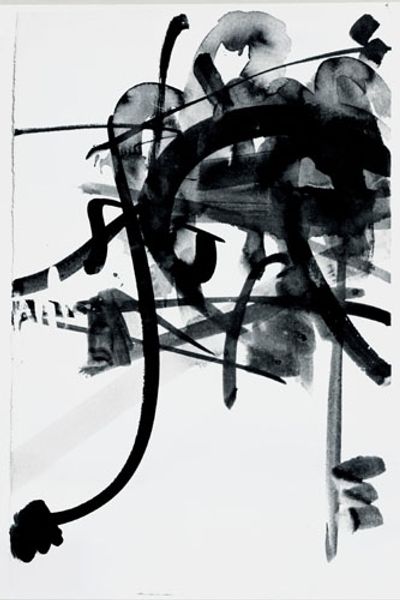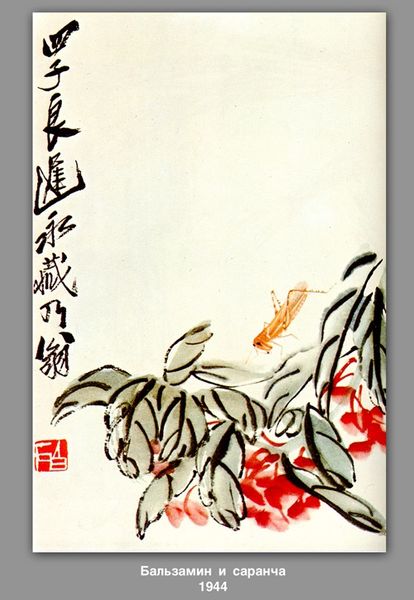
tempera, painting, print, paper, monoprint, ink
#
tempera
#
painting
# print
#
asian-art
#
landscape
#
flower
#
paper
#
monoprint
#
ink
#
linocut print
#
plant
#
abstraction
#
decorative-art
#
modernism
#
decorative art
#
calligraphy
Copyright: Public domain China
Qi Baishi made this ink-on-paper painting of wisteria flowers and meyhua around 1951. The pairing of these two flowering plants suggests ideas around longevity and renewal, important themes in Chinese culture. Painted in the People’s Republic of China, this work exists at a time when traditional art forms are being redefined under a socialist government. We can ask, what is the public role of art in this historical context? Looking at the bright colors and natural imagery we might consider the politics of imagery, especially concerning the relationship between nature and society. How do the social conditions shape artistic production? Qi Baishi lived to be 93 years old, in this period traditional Chinese painting went from being the occupation of scholars and the elite, to becoming the work of professional artists who sold their work on the market, and eventually, as here, were sponsored by the state. By studying the institutional history and social context of this painting, we can better understand its meaning and significance.
Comments
No comments
Be the first to comment and join the conversation on the ultimate creative platform.
